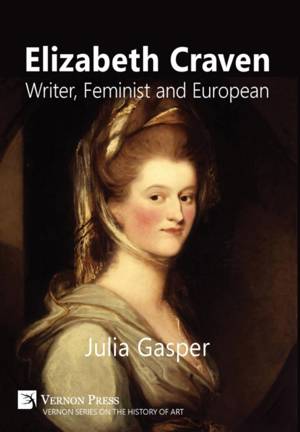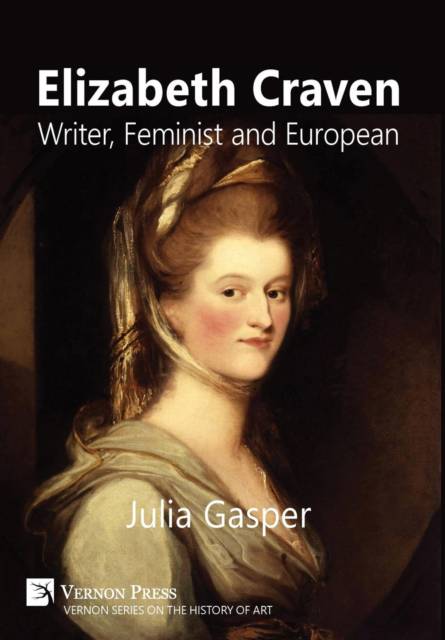
- Retrait gratuit dans votre magasin Club
- 7.000.000 titres dans notre catalogue
- Payer en toute sécurité
- Toujours un magasin près de chez vous
- Retrait gratuit dans votre magasin Club
- 7.000.0000 titres dans notre catalogue
- Payer en toute sécurité
- Toujours un magasin près de chez vous
Description
Elizabeth Craven's fascinating life was full of travel, love-affairs and scandals but this biography, the first to appear for a century, is the only one to focus on her as a writer and draw attention to the full range of her output, which raises her stature as an author considerably. Born into the upper class of Georgian England, she was pushed into marriage at sixteen to Lord Craven and became a celebrated society hostess and beauty, as well as mother to seven children. Though acutely conscious of her relative lack of education, as a woman, she ventured into writing poetry, stories and plays. Incompatibility and infidelities on both sides ended her marriage and she had to move to France where, living in seclusion, she wrote the little-known feminist work Letters to Her Son. In the years that followed, she travelled extensively all over Europe and turned her letters into a travelogue which is one of her best-known works. On her return she went to live in Germany as the companion and eventually second wife of the Margrave of Ansbach. At his court she organised and appeared in theatricals, and wrote several more plays of great interest, including The Modern Philosopher. In 1792 she and the Margrave settled in England, where they were never fully accepted by the more strait-laced pillars of society but mixed with all the musicians and actors and the more rakish of the Regency set. Craven continued to put on her own theatricals and write for the theatre. In her old age, she moved to Naples where she passed her time sailing, gardening and writing her Memoirs. Even in her final years, scandal dogged her, and Craven made her feminist principles and criticisms of the laws of marriage apparent through her involvement in the notorious divorce case of Queen Caroline.
Spécifications
Parties prenantes
- Auteur(s) :
- Editeur:
Contenu
- Nombre de pages :
- 332
- Langue:
- Anglais
- Collection :
Caractéristiques
- EAN:
- 9781622732753
- Date de parution :
- 20-07-17
- Format:
- Livre relié
- Format numérique:
- Genaaid
- Dimensions :
- 152 mm x 229 mm
- Poids :
- 594 g

Les avis
Nous publions uniquement les avis qui respectent les conditions requises. Consultez nos conditions pour les avis.






